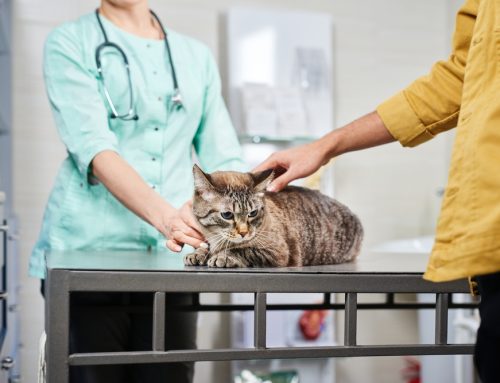There’s no denying that our pets’ lives are far too short, but while we can’t make them live forever, we can do the next best thing. By approaching our pet’s health and wellbeing proactively, we can extend the time we spend together and improve their overall quality of life. It’s never too late to take control of your pet’s health, so our Twin Maples Veterinary Hospital team offers do’s and don’ts that can add years to your pet’s life.
DO spay or neuter your pet
Spaying or neutering your pet not only supports your pet’s health but also prevents accidental litters and limits pet overpopulation. Spaying and neutering help protect your pet against serious health problems, including life-threatening reproductive cancers, can eliminate unwanted behaviors, and add years to their life. Spaying and neutering are part of responsible pet ownership, so contact our team if you have any questions, or to schedule your pet’s procedure.
DON’T skip your pet’s wellness exams
You wouldn’t hesitate to take your pet to the veterinarian when they’re sick or injured, but regular veterinary wellness exams—when pets are healthy—are essential for your pet’s long-term health. Regular wellness exams (i.e., at least once a year for healthy, adult pets) allow your veterinarian to identify illness and injury signs early, when your pet’s treatment options and overall prognosis are greatly increased. During your pet’s wellness exam, the veterinarian will perform a thorough physical assessment and testing, such as blood work, to monitor your pet’s health, and ensure your pet is up to date on their vaccinations and monthly parasite preventives that protect against a variety of diseases.
DO protect your pet from parasites
Parasites may be tiny, but they can hugely impact your pet’s health. Fleas, ticks, and mosquitoes can transmit harmful diseases—such as flea allergies, Lyme disease, and heartworm disease, respectively—and can infect your pet any time of year. Fortunately, a plethora of parasite prevention products make protecting your pet easy. The Companion Animal Parasite Council (CAPC) recommends year-round parasite prevention for all pets, as well as routine testing for parasite-related diseases. For advice on choosing the best prevention product for your pet, contact the Twin Maples Veterinary Hospital veterinary team.

DON’T underestimate the importance of your pet’s dental health
Dental care is often overlooked, but can impact a pet’s overall health and wellbeing—the American Veterinary Medical Association (AVMA) estimates that the majority of pets show dental or periodontal disease signs by 3 years of age. Tartar buildup can lead to gingivitis, causing irritation and inflammation of the gums and surrounding tissues that become more severe and painful over time. Neglecting regular dental care can lead to unnecessary pain, periodontal disease, permanent organ damage, and a shortened lifespan, so protect your pet and add years to their life with a dental health care routine that includes:
- Regular veterinary dental exams and professional teeth cleanings
- Daily at-home toothbrushing
- Veterinary Oral Health Council (VOHC)-approved dental chews
DO keep your pet at a healthy weight
Pet obesity is an epidemic in the United States. An overweight or obese pet often has a decreased lifespan and a higher risk of developing numerous weight-related health issues, such as:
- Arthritis
- Diabetes
- Hypothyroidism
- Heart disease
- Respiratory issues
- Cancer
Keeping your pet at an ideal weight is the best way to keep them healthy. Steps include:
- Scheduling regular wellness exams — During your pet’s yearly wellness exam, our veterinary professionals will assess your pet’s weight, and evaluate them for any underlying conditions that could increase their obesity risk.
- Monitoring weight — Use a body conditioning score (BCS) to monitor your pet’s weight at home, and determine if they have a weight problem. The BCS system assigns a number to your pet based on fat evaluation of several body parts, and can help you determine your pet’s healthy weight.
- Measuring portions — A dog or cat calorie calculator can help you determine the number of daily calories your pet needs. Use a measuring cup to ensure you are feeding your pet the correct amount to maintain their healthy weight.
- Reducing treats — Treats should make up no more than 10% of your pet’s daily calorie intake, so when you treat your pet, adjust their meal portions accordingly, to account for the treat calories.
- Exercising daily — Exercise is an important factor in maintaining a healthy weight, so get your pet moving every day. The exercise will be good for you, too.
Our pets will never live as long as we do, but these do’s and don’ts can help extend their quality and quantity of life. If you have questions or need to schedule a wellness exam for your pet, contact Twin Maples Veterinary Hospital and schedule an appointment.









Leave A Comment